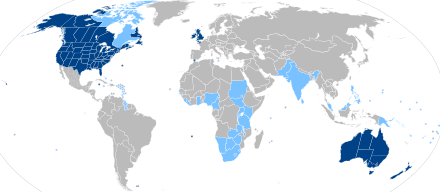Kari Dame
外觀
(Wada brahan dmudul paah Kari Igiris)

Kari Dame Doriq uxe de kesun daha Kari Igiris we (Kari Dame:English, Kari Tlu:英語), we kingal klegan na krkari Intu-Owcow . Mrengo kari Dame ka seediq Igiris, Amirika, Awco ma Kanada. 4000 mang kana hei ka tnkari Dame.
Alang skari Kari Dame
[smmalu patas | ida npatas sspgan ka smmalu patas]Dndulan Kari
[smmalu patas | ida npatas sspgan ka smmalu patas]- Kari Amirika
- Kari Awco
- Kari Kanada
| Kari Dame | |||||||||||||||||||||||||||||
|---|---|---|---|---|---|---|---|---|---|---|---|---|---|---|---|---|---|---|---|---|---|---|---|---|---|---|---|---|---|
| A | a | B | b | C | c | D | d | E | e | F | f | G | g | H | h | I | i | J | j | K | k | L | l | M | m | N | n | O | o |
| P | p | Q | q | R | r | S | s | T | t | U | u | V | v | W | w | X | x | Y | y | Z | z | ||||||||
Pnskngalan Hnghengak(語音系統)
[smmalu patas | ida npatas sspgan ka smmalu patas]Hengak Bubu (母音)
[smmalu patas | ida npatas sspgan ka smmalu patas]| berah | ckceka | bukuy | |
|---|---|---|---|
| nleban | ɪ i | ʊ u | |
| pcenga | e eɪ | ə (ɜ) | oʊ |
| rnwahan | æ | (ʌ) ɑ | (ɔ) |
Duma kari Igiris
[smmalu patas | ida npatas sspgan ka smmalu patas]| Kari Dame | Kari Seediq |
|---|---|
| Hello | Sndamac su (namu) bale! / Embiyax su (namu) hug? |
| Good Morning | Knrbuwan! |
| Good Night | Wan'an! |
| What is your name? | Ima ka ngayan su? |
| My name is ___ | ___ ka ngayan mu. |
| I am from ___ | Pneeyah ku ___. |
| Welcome! | Hwan'ing! |
| Goodbye | Swaye ta da! |
Kari Beyax Pusu Bobo Dheran
[smmalu patas | ida npatas sspgan ka smmalu patas]All human beings are born free and equal in dignity and rights. They are endowed with reason and conscience and should act towards one another in a spirit of brotherhood.
"Kana seediq bobo dheran nii we, traguh kndalax pnttingan ta; mntena ka beyax pusu ta. Pniqan gnkela ka knkingal seediq, kiya ka, asi ta ka mntena mptswayi mggaalu ma mptbale msuupu." (Tg1 patis, Kari Beyax Pusu Bobo Dheran)
Patis pnyahan
[smmalu patas | ida npatas sspgan ka smmalu patas]- Aarts, Bas; Haegeman, Liliane (2006). "6. English Word classes and Phrases". In Aarts, Bas; McMahon, April (eds.). The Handbook of English Linguistics. Blackwell Publishing Ltd.
- Aitken, A. J.; McArthur, Tom, eds. (1979). Languages of Scotland. Occasional paper – Association for Scottish Literary Studies; no. 4. Edinburgh: Chambers. ISBN 978-0-550-20261-1.
- Algeo, John (1999). "Chapter 2:Vocabulary". In Romaine, Suzanne (ed.). Cambridge History of the English Language. Vol. IV: 1776–1997. Cambridge University Press. pp. 57–91. doi:10.1017/CHOL9780521264778.003. ISBN 978-0-521-26477-8.
- Ammon, Ulrich (2006). Language Conflicts in the European Union: On finding a politically acceptable and practicable solution for EU institutions that satisfies diverging interests. International Journal of Applied Linguistics. Vol. 16. pp. 319–338. doi:10.1111/j.1473-4192.2006.00121.x. S2CID 142692741.
- Ammon, Ulrich (2008). "Pluricentric and Divided Languages". In Ammon, Ulrich N.; Dittmar, Norbert; Mattheier, Klaus J.; et al. (eds.). Sociolinguistics: An International Handbook of the Science of Language and Society / Soziolinguistik Ein internationales Handbuch zur Wissenschaft vov Sprache and Gesellschaft. Handbooks of Linguistics and Communication Science / Handbücher zur Sprach- und Kommunikationswissenschaft 3/2. Vol. 2 (2nd completely revised and extended ed.). de Gruyter. ISBN 978-3-11-019425-8.
